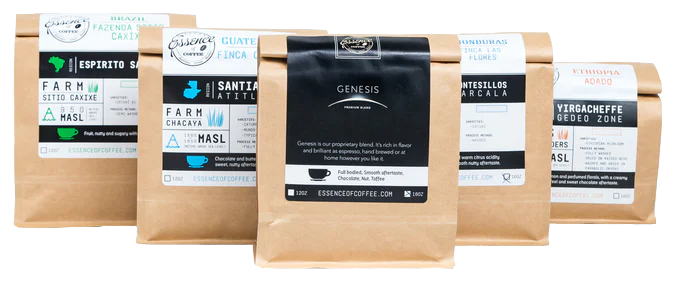
Mycotoxins in Coffee: Separating Fact from Fiction
Coffee has long been the target of health myths. One of the most persistent comes from Dave Asprey, creator of “Bulletproof Coffee,” who claimed regular coffee is “full of mycotoxins.”
While molds do produce mycotoxins, decades of scientific research show that coffee does not contain harmful levels. In fact, peer-reviewed studies and independent reviews confirm that coffee remains one of the safest and most enjoyed beverages worldwide. Even Joe Rogan, who once repeated Asprey’s claims, later admitted he had taken them at face value before reviewing the evidence for himself. (https://www.youtube.com/watch?v=rwY4H3cNTH0)
What the Science Actually Says:
- Science Feedback Review: Current evidence doesn’t suggest coffee contains toxic levels of mold nor causes cancer
- https://www.healthline.com/nutrition/the-mycotoxins-in-coffee-myth
- https://pubmed.ncbi.nlm.nih.gov/11600012/ Effects of roasting conditions on Ochratoxin A
- https://pmc.ncbi.nlm.nih.gov/articles/PMC4247821/pdf/nihms564584.pdf Ochratoxin A and human health risk
- Study on Ochratoxin A in Human Breast Milk (Redalyc)
- Toxicology Research on Mycotoxins in Cereals (ScienceDirect)
Yes, mycotoxins exist in the environment, but everyday exposure is far greater in cereals, peanuts, and corn than in coffee. Further, as shown in studies referenced above, roasting and brewing processes have a significant impact on mycotoxins significantly reducing their presence in coffee.
Essence of Coffee’s Perspective:
At Essence of Coffee, we are committed to quality, safety, and flavor. Our beans are sourced directly from specialty farms with strict growing and processing standards—ensuring every cup is as safe as it is delicious.
The Bottom Line:
While mycotoxins are real, the fear surrounding coffee is not. The science is clear: your daily brew remains one of the safest—and most enjoyable—rituals in the world.
CONCLUSION
While mycotoxins like ochratoxin A (OTA) can pose health risks, current evidence indicates that the levels of OTA found in coffee are not harmful to humans. Additionally, claims linking the diuretic effect of coffee to the body’s need to flush out OTA are unfounded, as the rapid need to urinate after coffee consumption is due to caffeine’s natural diuretic properties rather than toxin expulsion. (Science Feedback Review: Current evidence doesn’t suggest coffee contains toxic levels of mold nor causes cancer)

